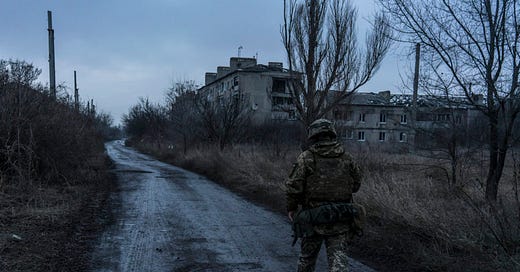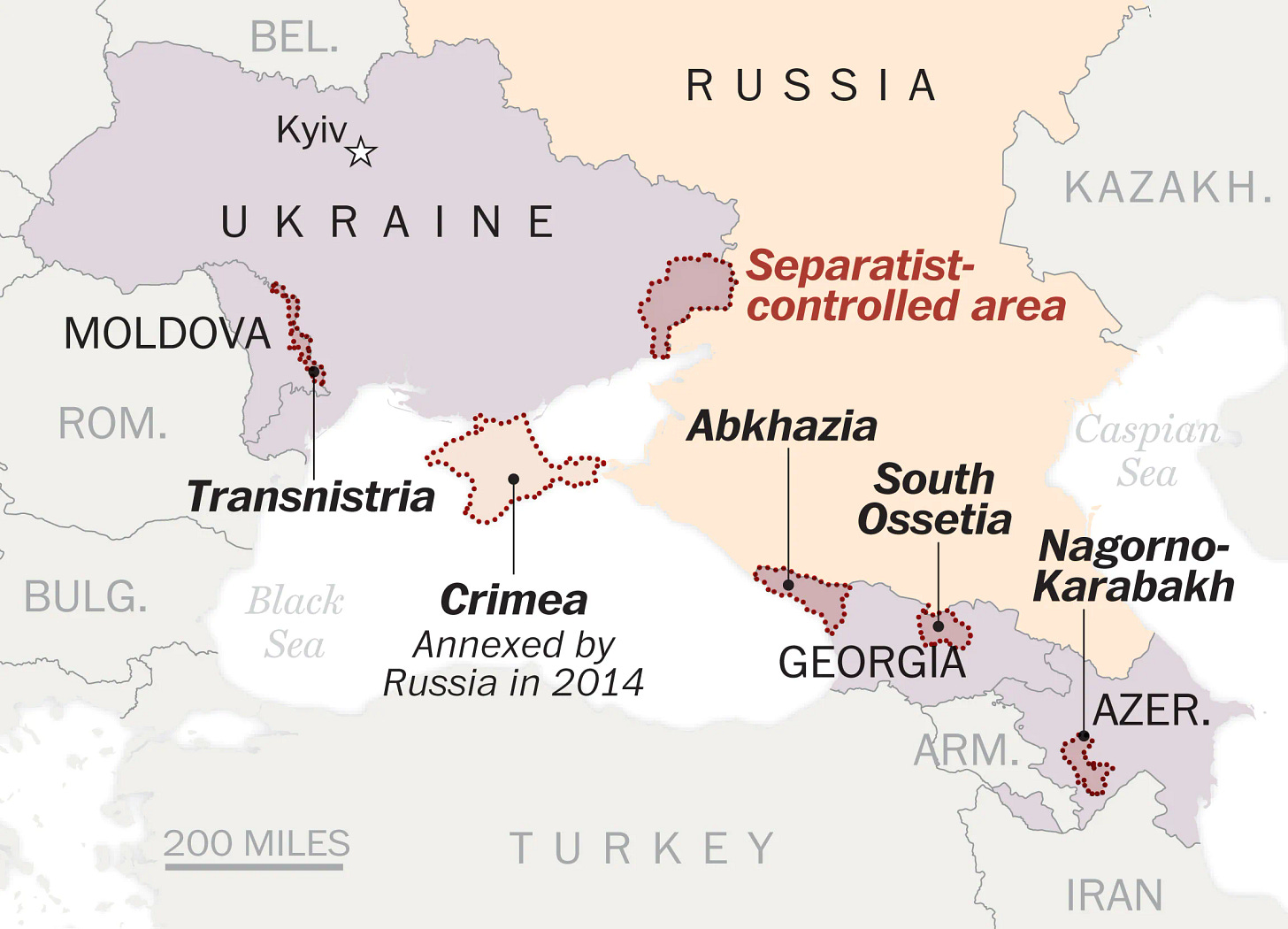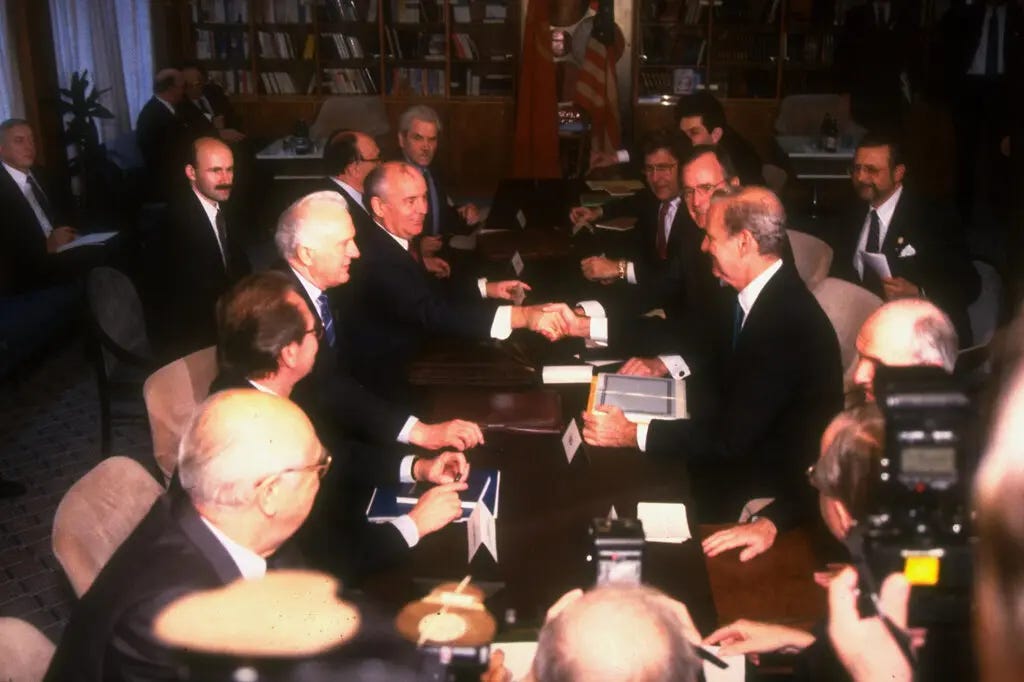In the wee hours of Thursday morning, Russian President Vladimir Putin in a televised address to the nation, declared the start of a “special military operation” in Ukraine, pledging he would seek to demilitarize but not occupy the country. Putin said the operation would aim for the “demilitarization and denazification of Ukraine” and vowed to retaliate against other countries who interfere with Russia’s actions. The declaration comes days after he signed the decrees on recognizing the Donetsk and Lugansk People’s Republics, inviting a tranche of sanctions from the West targeting Russia’s state-owned banks, country’s elites and their family members. Germany has also taken steps to halt the process of certifying the Nord Stream 2 gas pipeline from Russia.
In the address Putin noted, “I have taken the decision to carry out a special military operation. Its goal will be to defend people who for eight years are suffering persecution and genocide by the Kyiv regime. For this we will aim for demilitarization and denazification of Ukraine, as well as taking to court those who carried out multiple bloody crimes against civilians, including citizens of the Russian Federation. Our plans do not include occupying Ukrainian territory.” He called on Ukrainian soldiers to immediately lay down their arms. The Kremlin said the breakaway regions in eastern Ukraine had asked for military support.
Ukraine’s aspiration to join NATO, he said, represented a dire threat to Russia. He evoked the NATO bombing of Yugoslavia in 1999 and the US invasion of Iraq in 2003, while targeting the West.
As Putin was speaking, explosions were heard in Kyiv, the northeastern city of Kharkiv and other parts of Ukraine.
In a late-night address, Ukranian President Zelensky said he had unsuccessfully sought talks with Russian President Vladimir Putin. Zelensky made an emotional appeal to Russians to reject an attack, saying they were being lied to about Ukraine. Ukraine's leader said his country was ready for a Russian attack, vowing: "If they attack, if they try to take our county - our freedom, our lives, the lives of our children - we will be defending ourselves."
"I initiated a telephone call with the president of the Russian federation. Result: silence," Zelensky said.
It was a long night in Kyiv, as the Ukrainian Parliament on Wednesday, approved a declaration of a state of emergency in the country except for the two eastern regions, while Zelensky declared martial law in the country because of the Russian attack.
The country also witnessed a series of cyber-attacks which its government said were "on a completely different level". The websites of several Ukrainian banks and government departments became inaccessible.
Early on Thursday, Ukraine said it had restricted civilian flights in its airspace due to "potential hazard".
Kyiv called for the UN Security Council’s emergency meeting following the Russian intervention. Ironically, Russia chairs the Security Council at this time.
In a statement, U.S. President Joe Biden called the attack “unprovoked and unjustified,” saying that Russia has chosen a war “that will bring a catastrophic loss of life and human suffering.”
“Russia alone is responsible for the death and destruction this attack will bring, and the United States and its allies and partners will respond in a united and decisive way,” Biden said.
After weeks of questioning Western intelligence reports that suggested Putin was planning a large-scale invasion of Ukraine, the worst of its fears have come true. Months of diplomatic engagements between Moscow and the West with respect to Russia’s security demands didn’t offer a major breakthrough. The talks on Minsk agreements have now been thrown in the dustbin of history.
As the window of diplomacy seems to be nearly shut, President Putin is braced for a long game in Ukraine. With the West solely relying on sanctions to held Moscow accountable, it is now understandable that Russia knows about navigating through them. The question as to what would happen next, the answer is ‘It’s up to Putin’. A major offensive is on the cards. The possibility of an occupation in Russian-speaking parts of Ukraine followed by a Crimea-style referendum remains a distinct possibility.
In Other News
Russia has welcomed India’s “independent position” with regard to the Ukraine crisis. The country’s Deputy Chief of Mission in India, Roman Babushkin said that India has been playing a vital role as a responsible global power.
Pakistan’s President Imran Khan is on a visit to Moscow, the first by a Pakistani Prime Minister in 23 years with talks ranging from Pakistan Stream pipeline to connectivity on the agenda.
Belarus’ Defence Minister Viktor Khrenin announced at a press conference that the tens of thousands of Russian soldiers currently in Belarus for military exercises will be staying indefinitely.
China's Rival to Uber, Didi, owned by Didi Chuxing, will stop working in Russia and Kazakhstan, the company announced.
The European Union introduced personal sanctions in connection with Russia’s recognition of Donetsk and Lugansk People’s Republics against almost 400 representatives of Russian political, defense and economic establishment, journalists and public figures.
Gas prices in Europe rose above $960 per 1,000 cubic meters on Wednesday.
Combat ships and submarines of the Russian Northern Fleet returned home after drills in the Barents Sea.
Around Russia in 80 Words
Trading on the Moscow Exchange has been suspended because the ruble and the Russian stock market fell to limits set by the Exchange. Gazprom can terminate its contract with Moldovagaz and discontinue gas supplies to Moldova unless the sides settle the issue of the historic debt — estimated at $900mn by the Russian side. Only six weeks after protests in the Mangystau region triggered a chain reaction of nationwide rallies that culminated with deadly unrest in the city of Almaty, oil workers have come out onto the streets with demands for higher pay.
The Real Talk
Serbian President Aleksandar Vucic ha said that 85% of his country’s residents will always support Russia whatever may happen.
The Reader’s Checklist
Pod this Week
From the Vault
Secretary of State James A. Baker III, right, shaking hands with Soviet leader Mikhail Gorbachev during a meeting in 1989.






